With Super Bowl Sunday just around the corner, we’ve got a touchdown-worthy episode for you! Join us as we break down a popular behavioral economics concepts that might explain why Super Bowl tickets as so pricey. We ask ourselves how much we'd be willing to pay to catch the game live, and on the flip side, how much we'd want for a ticket if we had one to sell. Get ready for a thought-provoking discussion that unveils the dynamics of consumer preferences.
In this episode, we discuss:
What each of us is teaching this spring & how we tell our students about our administrative rolls
The willingness-to-pay and willingness-to-accept disparities and Super Bowl behavior.
Odd behavior on ticket reselling sites that lines up with the endowment effect
And a whole lot more!
Catch up on some old episodes:
You can also listen to us on Google Podcasts, TuneIn Radio, and Apple Podcasts. If one of these is your go-to podcast service, be sure to rate us and subscribe!
Watch this episode on YouTube:
Some show notes:
Jadrian kicks off the episode with a refreshing cider from Cobbler Mountain, while Matt, sticking to "Damp January," enjoys a Back in Da Haze Hazy IPA from Melvin Brewing.
We recorded this episode before the NFL playoffs heated up, but still wanted to tackle a classic Super Bowl scenario—how much would we pay to attend the big game? Matt then flipped the script, asking Jadrian to think about how low he'd be willing to go to sell a Super Bowl ticket he was given. Spoiler alert: Jadrian's not willing to pay more than $700 to attend but wants over $1,000 to part with his ticket.
Discover the intriguing behavioral economics at play here—it's known as the "endowment effect," where we tend to value things more highly simply because we own them. In this episode, we also talk some about the concept of "loss aversion," where people are wary of losing something they possess.
Matt shares a fascinating experiment involving student willingness to pay for a flu vaccine at Susquehanna. The authors wanted to know whether it is worth incentivizing people to get vaccinated. The results are interesting, with half of the participants opting for a free vaccine, while the other half demanded no more than $20. It had interesting implications for public policy at a time when policymakers were considering paying people to get the Covid vaccine.
We also spent some time talking about peculiar behavior on ticket resale websites. Why do some sellers refuse to drop their prices leading up to an event even when they're not attending the event? It's a curious case of not wanting to "lose out" on potential earnings, even when the event attendance is off the table.
Are you guilty of falling for the endowment effect or loss aversion when it comes to sports/concert tickets? Let us know in the comments!
This week’s pop culture references:
While it might not be a traditional pop culture reference, Jadrian shared an interesting clip that looks into the endowment effect. Business Insider posed a fascinating question to a diverse group of individuals: Would they be willing to sell their Powerball lottery tickets before the big drawing? The clip highlights a common human behavior—many people are reluctant to let go of a potential multi-million-dollar ticket, even when a chance for reinvestment is at hand.
Matt treated us to a memorable moment from the classic TV series Family Ties. The ever-ambitious Alex P. Keaton (played by Michael J. Fox) concocts a scheme to rent out the family home during his school's homecoming weekend. Strange and comical events unfold, turning their household into an impromptu party hub. It's a prime example of how economic decision-making and human behavior can take center stage in the most entertaining ways.


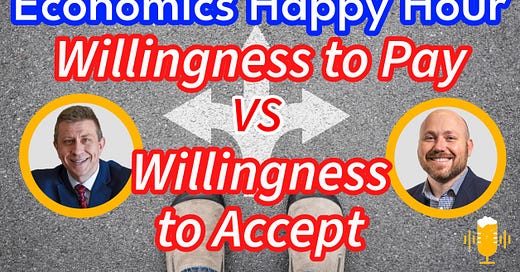
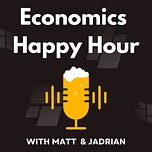










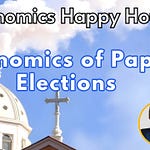


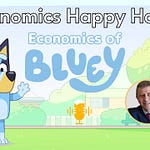
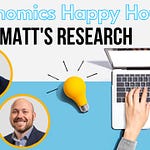

Share this post